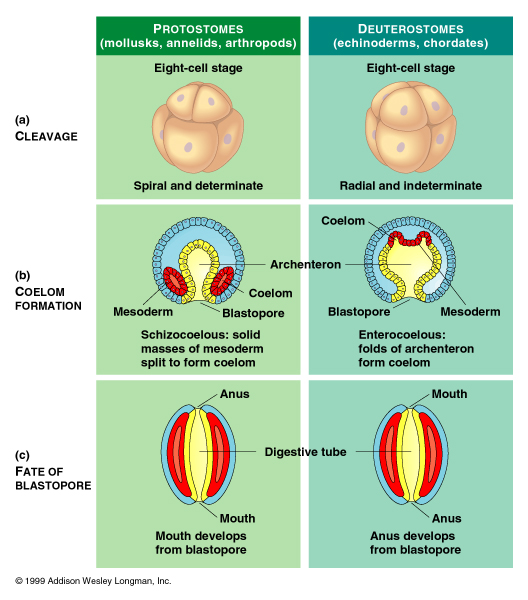
Proterostomic versus Deuterostomic development

Proterostomic versus Deuterostomic development
The majority of coelomate invertebrates develop as protostomes ("first mouth") in which the oral end of the animal develops from the first developmental opening, the blastopore. In the deuterostomes ("second mouth": cf. Deuteronomy, "second book of the law"), including Echinodermata and the ancestors of the Chordata, the oral end of the animal develops from the second opening on the dorsal surface of the animal; the blastopore becomes the anus.
The Deuterostomes also show indeterminate
development, in which each of the cells of the eight-cell embryo
if separated remain capable of developing as complete
organisms.This contrasts to determinate development, in
which the development fate of each cell in the adult
organism has already been determined.